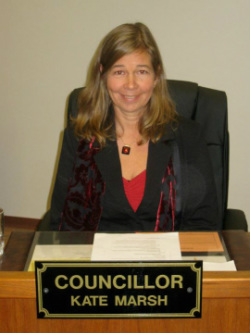What does home mean to you? My home is my sanctuary, my safe spot to fall. A place where I can retreat, regroup, refresh and revision. If I didn't have it, or was worried I couldn't keep it, I would be severely handicapped. The stress would be more than I could manage. Imagine yourself if you had to worry about where you'd be living, or sleeping next month. Whether to pay the full rent or buy food? Pay the hydro bill or buy your child a winter coat.
BC has the highest poverty rate in the country. One in nine people in BC live below the poverty level. In the Cowichan valley 30 % of our children are living in poverty.
One of the biggest issues for the poor is housing. Each of us has a right to live in a safe, secure home -- one we can afford.
Yet even for those of us with moderate incomes, finding safe, affordable housing in North Cowichan is becoming a challenge. And for those of us with lower incomes, it's almost impossible.
Too many current jobs are lower-paying and part-time. This makes affording safe housing a struggle, and contributes to our region's unacceptably high level of child poverty.
When local governments make development and zoning decisions, we need to understand how what we do about housing directly affects everyone's health, safety, and overall well-being.
Local government must put more pressure on senior government to address poverty. The Canadian Center for Policy Alternatives recently produced a compelling report on the true cost of poverty. For a short video presentation on the true cost of poverty in BC and the savings that would result from addressing it: click here.
Not addressing poverty affects the bottom line provincially and municipally. The pressure of poverty leads to almost unbearable stress which leads to mental health and addiction issues. These issues impact policing costs - and spiraling policing costs mean higher municipal taxes. The stress of poverty affects physical health - and greatly contributes to escalating health care costs. In BC we spend between 8 and 9 billion dollars a year on these costs of high rates of poverty. With the world economy in a tailspin - homelessness and affordable housing are issues that are only going to grow and so will the costs associated with the current ways of addressing poverty.
How are we going to deal with this? What can we do to address it? We'll never figure it out if we don't start asking the tough questions. Well never figure it out if we keep doing it the same old way - the partisan way. We swing left through center then right and back again, yet poverty rates are not improving. All parties and all levels of government are going to have to work together on this so we stop going back and forth and start moving forward.
I support the work of Social Planning Cowichan and the Regional Affordable Housing Directorate. Their research and groundwork offers a springboard for action -- a way to get local governments, non-profits, business and community groups working together.
As well as looking at housing in general, it's important to examine the barriers to housing for women specifically.
To that end, the Red Willow Womyn's Centre ( a group who has recently and ironically become homeless themselves) are co-sponsoring with Social Planning Cowichan and the Regional Affordable Housing Directorate, a morning dialogue on Women and Homelessness - October 14th from 10:00 am to 12:00 pm at VIU campus.
Local valley filmmaker Harold Joe will screen a new short film about women's lived experience with homelessness and a panel of guests will talk about women and homelessness from their perspectives. The morning event will be moderated by Red Willow's Patti Deslisle and the floor will be open to guests for a community dialogue on the issue.
After the session lunch will be provided at nearby Lunch on Clements. Hope to see you there!

 RSS Feed
RSS Feed
